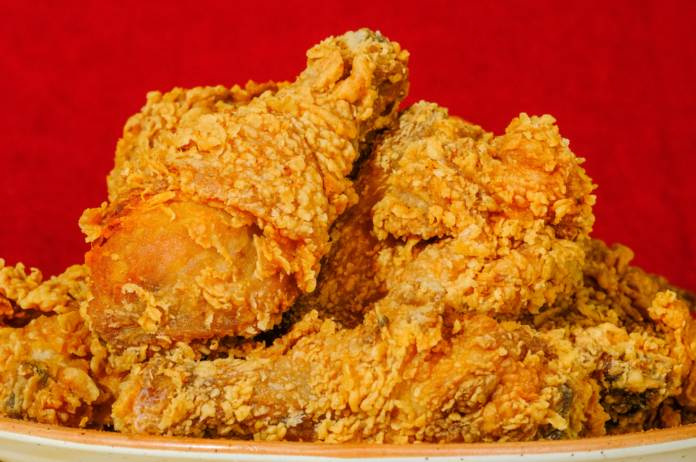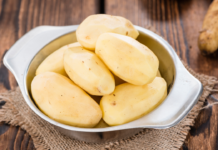Sponsored by: Renadyl™
Did you know that your chances of having a stroke, diabetes, high blood pressure, or kidney disease increases with a Southern diet of processed meats, and fried foods. In fact, there are thousands of people who live in southern states that are at an increased risk for the aforementioned diseases. You may be asking why does a Southern diet put you at risk for these chronic disease, which are preventable? The Southern diet is characterized by fried and fatty foods, which have been contributed to poor heart health. The typical individual consuming the Southern diet the most are African Americans. Southern states that have the highest rates of these chronic illnesses due to southern diet also known as “stroke belt” includes North Carolina, South Carolina, Georgia, Tennessee, Alabama, Mississippi, Arkansas, and Louisiana. In addition, it has been known that the Southern diet is also high in sodium and trans fats can lead to insulin resistance which can lead to diabetes. Unfortunately, many people are consuming the Southern diet and don’t know the potential risk they’re putting themselves in for these chronic diseases.
If you already have diabetes, hypertension, or chronic kidney disease consuming fried foods, sugar-sweetened beverages and other high sodium foods you raise your mortality risk. Regrettably, the majority of the people consuming a Southern diet live in the southern areas of the United States., but no matter where you live, eating the foods commonly found in the Southern diet regularly can pose serious health risks to your heart and kidneys. Nevertheless, there is hope in keeping your heart healthy, especially if you’re on dialysis. You can keep your heart healthy by changing your diet and choosing good fats, such as monounsaturated fats, polyunsaturated fats and Omega-3 fatty acids. Also, choose foods low in saturated fats and trans fatty acids. Here are some tips to help you keep your heart healthy:
- Choose Monounsaturated Fats: These are good fats that help to lower bad cholesterol in our bodies. Good sources are canola oil, olive oil, and peanut oil.
- Choose Polyunsaturated Fats: These also help to lower bad cholesterol and are similar to monounsaturated fats as they are plant-based and liquid at room temperature. Good sources include safflower, sunflower, and soybean oils.
- Choose Omega-3 Fatty Acids: A special fat shown to lower your risk of heart disease. Good sources are coldwater fish, such as salmon, tuna, herring, rainbow trout, and mackerel.
- Limit Saturated Fats: Sources generally come from animal products and are solid or waxy at room temperature. Limit chicken skin, high fat cuts of meat, fried and fast food, cheese, butter, whole milk, ice cream and coconut oil, palm and palm kernel oils found in processed and baked foods.
- Limit Trans Fats: This “hidden” saturated fat is found in many processed foods such as stick margarine, vegetable shortening, whipped toppings and commercially baked cookies, cakes and crackers. Look for Trans Fat listed on the nutrition label of all packaged foods.
For many kidney patients, It is a challenge following a heart-healthy and renal diet as many foods are high in potassium and phosphorus. For example, nuts, seeds and avocados are good sources of healthy fats, but are not recommended for renal patients. If you have any questions about your diet reach out to a dietitian or your physician.
Learn more about our sponsor Renadyl here https://bit.ly/3sZDWbb





Just got a cat-scan showing large kidney stone in right side kidney. I have been eating lots of trail mix for plant based protein. Big mistake, chocolate, almonds, cashews and peanuts can lead to formation of stones. Also I like spinach and soy beans, they are also on list of do not eat I had drain put in right kidney and labs improved 50% and saw stones in stoma bag day later. I have two bags and they both are flowing. Creatine went from 2.74 to 2.27 in two days in ICU
Hi John!
Thank you so much for your comment! I’m glad you saw such a big reduction in your creatinine!
It’s important to work directly with a renal dietitian who understands your individual case and dietary needs, as they can help guide you to make the best choices to protect your kidneys.
Comments are closed.